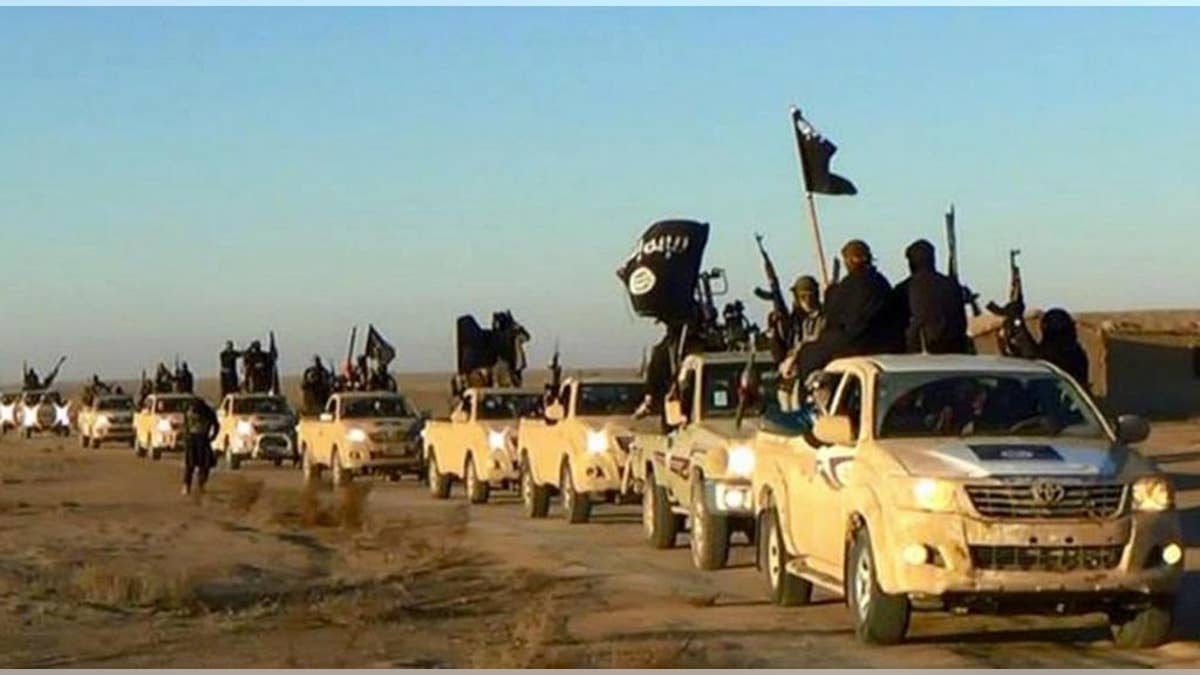
(The Associated Press)
The Fourth of July – America’s Independence Day – is not an official Israeli holiday, but in recent years it has become an occasion for fireworks.
Last year Hamas lit up the Israeli sky with a barrage of rockets from the Gaza Strip, aimed at civilian targets. This year the bombs bursting in air were fired from northern Sinai by a new enemy: the Islamic Caliphate, aka ISIL, ISIS and various other aliases and euphemisms. These are the guys with the black and white flag who have been chopping off heads in the name of Allah in Iraq, Syria, Libya, Tunisia, Nigeria, France and other locales.
Now they are right next door.
Over the Fourth of July weekend, forces of the Caliphate launched a very well organized surprise attack on Egyptian soldiers and police in the Sinai Peninsula. The operation bore the organization’s familiar trademarks: the black and white flag, decapitations, mutilations and the bloodthirsty rhetoric of jihad.
The Caliphate is no longer someone else’s problem. Israel, for the first time, is in range, and Israeli strategists are just starting to come to terms with what that means.
Israel and Egypt, which share the Sinai border and cooperate on security and intelligence matters, were both caught off guard. The troops of Egyptian President Abdul Fattah Al-Sisi launched a bloody and successful counterattack, but that engagement was just the beginning of what appears to be a new theater of Caliphate conquest.
A spokesman for the group announced that it had fired at Israel because of its ties to Egypt. The missiles themselves landed in empty fields, but they hit their target. The Caliphate is no longer someone else’s problem. Israel, for the first time, is in range, and Israeli strategists are just starting to come to terms with what that means.
From an intelligence standpoint, the fighting, within hearing distance of the border, was a serious failure. Israeli intelligence is already focusing its attention on the situation in Sinai, and it will share its information and assessments with Egypt. It is also granting the Egyptian air force clearance to fly missions over Sinai, which are banned by the Israeli-Egyptian peace treaty.
On its side of the border, Israel has stationed anti-missile batteries directed toward Sinai and has stepped up its ground forces’ state of alert. The army considers it unlikely that the jihadis will launch a ground attack – the Caliphate is homicidal, not suicidal – but they could step up missile attacks in the hope of drawing Israel into a war it doesn’t want.
There is also a domestic threat to contend with. Caliphate forces in Sinai are drawn largely from the peninsula’s nomadic Bedouin tribes. Israel has its own Bedouin population in the Negev desert. Those tribes are tied to the Bedouins in the Sinai by blood and cultural affinity.
Israeli planners are concerned that the Sinai Bedouins’ enthusiasm for the Caliphate brand of bloody holy war could be contagious. On Monday, the government announced that five Bedouin citizens, including several teachers, have been indicted for spreading Caliphate propaganda and planning to join the jihad.
Government officials in Israel worry even more about the contagion spreading to Cairo. Al Sisi, who came to power by overthrowing the Muslim Brotherhood government, is a de facto ally of Israel in the fight against Hamas (a Muslim Brotherhood offshoot), as well as in the effort to block Iranian aggression in the Middle East.
The Muslim Brotherhood is fighting an escalating terror campaign against the Al Sisi regime. A Caliphate campaign in Sinai would tax the already stretched Egyptian army (which is also fighting jihadis on its border with Libya) and inspire the hearts and minds of people throughout Egypt. And should the Brotherhood succeed in toppling Al Sisi, it would create the sort of chaos that the Caliphate could exploit to come out in control.
It is hard to imagine a harsher blow to Israeli security or the stability of the Middle East. A Caliphate regime in Egypt (or Jordan, another vulnerable target) would inevitably mean all-out regional warfare.
A year ago this scenario would have seemed fanciful. Today, it is plausible. And there are only 362 days left until the next Fourth of July.
